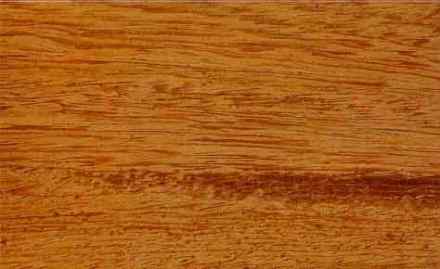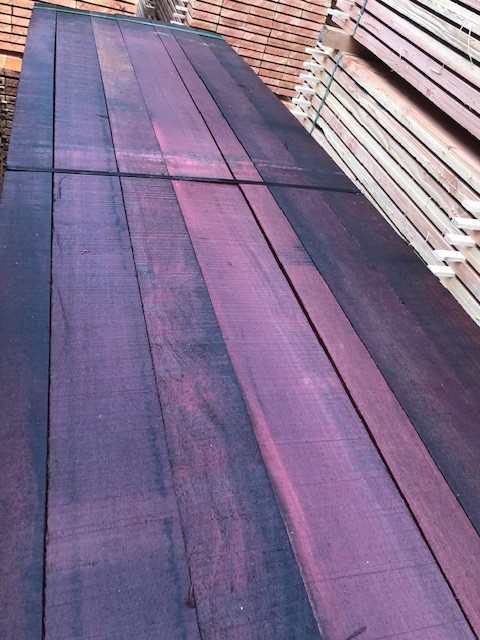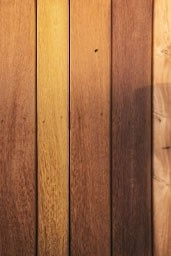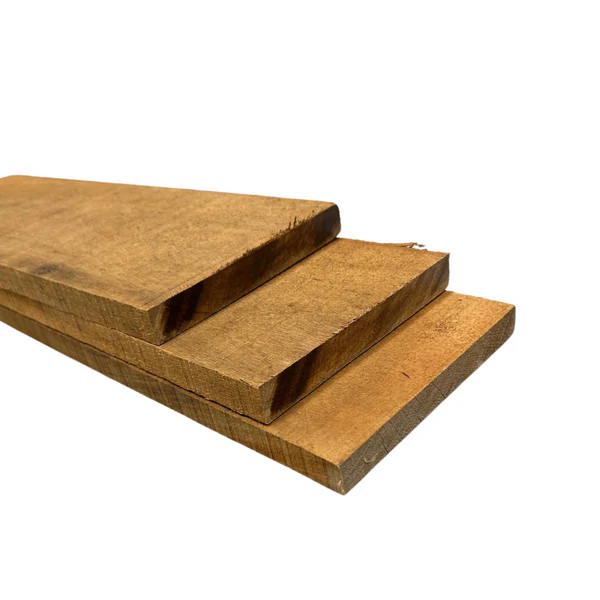Suriname is a country renowned worldwide for its rich biodiversity and the vast array of hardwood species it harbors. These hardwoods are not only valued for their strength and durability but also for their aesthetic appeal in the construction and furniture industries. Unfortunately, several hardwood species from Suriname are listed under CITES due to the threat of overexploitation. This listing results in strict regulation of their trade. In this blog, we will delve deeper into the hardwood species from Suriname, the impact of CITES regulations, the sustainable alternatives offered by THPS, and the benefits of Surinamese hardwood.
What is the CITES list?
The CITES list is an international treaty that regulates the trade of endangered animal and plant species. Hardwood species listed under CITES, such as Ipé, Mahogany, and Brazilian Rosewood, are subject to strict trade restrictions. These woods are considered vulnerable to overexploitation, leading to a decline in their populations. Companies working with these hardwoods must adhere strictly to CITES regulations to prevent illegal trade. This underscores the importance of sustainable hardwood and choosing species that are not listed under CITES.

Well-Known CITES-Regulated Hardwood Species
Ipé
Ipé is one of the most popular hardwood species worldwide. Recently, it has also been added to the CITES list. As an alternative, Djindja Udu is available, and a blog has been written that explores this option in more detail.
Mahogany
Mahogany, renowned for its rich color and elegant appearance, is often used in the furniture industry, interior finishes, and veneers. It has long been listed under CITES and is one of the most well-known hardwood species protected globally. Due to the growing demand for Mahogany and the need to prevent overexploitation, it is crucial for companies to seek alternatives that comply with sustainable wood management practices.
Sustainable Alternative from Suriname: Makka Kabbes is a stunning alternative to Mahogany. With its rich, dark color and durability, it is an excellent choice for both indoor and outdoor applications, such as furniture and flooring. It meets the requirements for sustainable forest management, making it a responsible alternative to Mahogany. At THPS, a dedicated legality manager oversees the entire process, ensuring compliance and guaranteeing legality.

Brazilian Rosewood
Brazilian Rosewood, better known as Rosewood, is famous for its fragrant properties and beautiful color. It is often used in the perfume industry and for luxury furniture. This hardwood is listed under CITES Appendix II due to the risks of overexploitation, particularly in the forests of Brazil. The growing demand for Brazilian Rosewood has led to stricter trade restrictions to combat illegal trade and the loss of biodiversity.
Sustainable Alternative from Suriname: Purple Heart offers an excellent substitute for Rosewood. It features a unique purple color and is known for its strength and durability. Purple Heart is increasingly being used for furniture and flooring and is an attractive choice for those seeking an alternative to Brazilian Rosewood without the negative environmental impact.

Ebony
Ebony is one of the most sought-after yet endangered hardwood species. It is listed under CITES due to the risk of overexploitation. Ebony is often used for luxury furniture, art objects, and musical instruments because of its deep black color and density.
Sustainable Alternative from Suriname: Pakuli is a sustainable alternative to Ebony. This hardwood has a yellow to golden-brown color and is strong enough for both indoor and outdoor applications. It offers the durability needed for furniture and flooring, without the harmful effects associated with the use of Ebony.

Red Meranti
Red Meranti, native to the tropical rainforests of Southeast Asia, is widely used for construction materials, furniture, and veneer. It is listed under CITES due to habitat loss and the threat of overexploitation.
Sustainable Alternative from Suriname: Basralocus is an ideal alternative to Red Meranti. Basralocus is a hard, dense wood with a light to medium brown color and excellent resistance to weather conditions, making it highly suitable for outdoor projects such as garden furniture and patio flooring.

Sustainable Forest Management and Responsible Wood Use in Suriname
In addition to choosing alternatives to CITES-regulated hardwood species, sustainable forest management plays a crucial role in protecting the environment and biodiversity in Suriname. Suriname has strict laws and regulations governing the acquisition of hardwood, which means that the wood processed, sawn, planed, and dried by THPS comes from legal and responsible sources. This ensures that Suriname’s forests are not overexploited and that the ecological impact is minimized, while the local economy benefits from the sustainable timber industry. THPS guarantees this by having a legality manager who continuously monitors the process.
